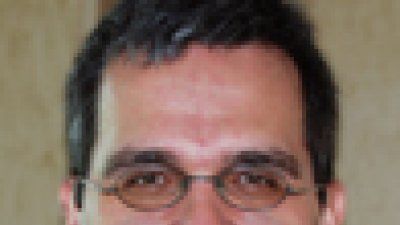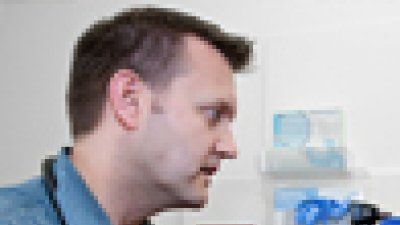White House Names San Francisco HIV/AIDS Leader to National Post
President Barack Obama appointed UCSF AIDS expert Grant Colfax, MD, as the director of the Office of National AIDS Policy.

University of California San Francisco
Give to UCSFPresident Barack Obama appointed UCSF AIDS expert Grant Colfax, MD, as the director of the Office of National AIDS Policy.

A drug once taken by people with HIV/AIDS, but long ago shelved after newer, modern antiretroviral therapies became available, has now shed light on how the human body uses its natural immunity to fight the virus — work that could help uncover new targets for drugs.

<p>Paul Volberding, MD, one of the world's leading experts on treatment for patients infected with HIV, the AIDS virus, became the new director of the AIDS Research Institute (ARI) at UCSF on Feb. 13.</p>

<p>Scientists at the San Francisco VA Medical Center and the University of California, San Francisco have published a study showing that one of the most effective and commonly prescribed antiretroviral medications for HIV/AIDS, tenofovir, is associated with a significant risk of kidney damage and chronic kidney disease that increases over time. See accompanying news release, <a href="http://ucsf.edu/news/2012/02/11508/tenofovir-leading-hiv-medication-linked-risk-kidney-damage">Tenofovir, Leading HIV Medication, Linked with Risk of Kidney Damage</a>.</p>

Tenofovir, one of the most effective and commonly prescribed antiretroviral medications for HIV/AIDS, is associated with a significant risk of kidney damage and chronic kidney disease that increases over time, according to a study of more than 10,000 patients led by researchers at the San Francisco VA Medical Center and UCSF.

In perhaps the most comprehensive survey of the inner workings of HIV, an international team of scientists led by researchers at UCSF has mapped every apparent physical interaction the virus makes with components of the human cells it infects — work that may reveal new ways to design future HIV/AIDS drugs.

Scientists at the Gladstone Institutes have discovered new protein fragments in semen that enhance the ability of HIV, the virus that causes AIDS, to infect new cells—a discovery that one day could help curb the global spread of this deadly pathogen.

<p>UCSF and its affiliate Blood Systems Research Institute have been awarded nearly $33 million in research contracts for four projects as part of a major new research initiative designed to improve the safety and effectiveness of blood transfusions in the United States and abroad.</p>

<p>As physicians working on the frontlines of HIV/AIDS since its start 30 years ago near retirement, UCSF is looking to attract and train the next generation of doctors to specialize in HIV/AIDS medicine.</p>

<p>Ellen Schell, RN, PhD, director of International Programs for the Global AIDS Interfaith Alliance and an associate adjunct professor in the UCSF School of Nursing, reflects on the uphill battle to combat AIDS in Malawi, a tiny, impoverished country of 15 million.</p>

A cheaper laboratory test that helps guide anti-retroviral drug treatment for people with HIV/AIDS may be just as effective as a more sophisticated test, a group of international researchers has found – a discovery that could be particularly important in rural Africa.

<p>As we mark World AIDS Day this week, the U.S. Centers for Disease Control (CDC) and Prevention reports that more than a million Americans now live with the disease, and every year some 50,000 people in the United States alone are newly infected.</p>

<p>UCSF has been working for the past 30 years as a leader in AIDS basic and clinical research, patient care, policy development and community and global outreach – efforts that continue today.</p>

Low level HIV viremia – the presence of HIV in the bloodstream at levels undetectable by standard tests – was not associated with increased blood markers of inflammation or coagulation, or with increased risk of death, in adults taking highly active anti-retroviral therapy (HAART) for HIV infection, in a study led by researchers at the San Francisco VA Medical Center and UCSF.

The U.S. Health Resources and Services Administration has funded the UCSF Center for AIDS Prevention Studies to provide leadership and support to seven states implementing interventions to enhance HIV testing and diagnosis.
